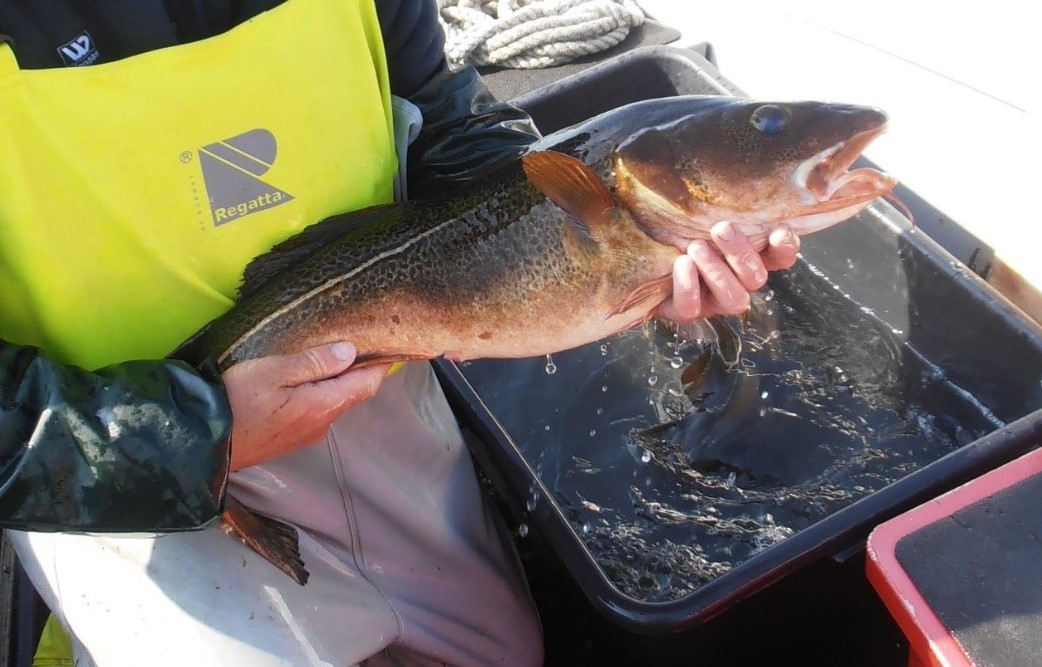The disputation will be live streamed using Zoom. The host of the session will moderate the technicalities while the chair of the defence will moderate the disputation.
Ex auditorio questions: The chair of the defence will invite the audience to ask ex auditorio questions either written or oral. This can be requested by clicking "Participants" followed by clicking "Raise hand".
The meeting opens for participation just before 1.15 PM, and closes for new participants approximately 15 minutes after the defense has begun.
Trial lecture
"Projecting Vulnerability of Marine Fish to Climate Change: Direct and Indirect Processes"
Main research findings
In his PhD, Giovanni Romagnoni studied the spatial dynamics of Atlantic Cod (Gadus morhua) in the North Sea using multiple ecological modelling tools, to understand how different populations respond to changes in temperature and oceanography, and to what extent these dynamics really matter for fisheries management. The results show that oceanographic changes influence the dynamics and connectivity of individual populations, and that the different dynamics and climate sensitivities do not necessarily matter for fisheries management.
It is known that local populations may respond differently to climate change. Fisheries management often overlooks individual populations’ dynamics and their sensitivity to climate. How is population-specific climate sensitivity relevant for population dynamics and fisheries management?
Climate variability may affect the transport of planktonic cod eggs and larvae from spawning to nursery areas, influencing their survival and modifying connectivity between populations. To study this aspect, Giovanni proposed a novel method to account for population connectivity and its effect on abundance of juvenile cod in the following years using a biological-oceanographic model, showing the potential relevance of connectivity and its climate dependency for fisheries management.
Finally, Giovanni applied a bioeconomic model to investigate optimal fisheries management strategies. The results show that when the optimal harvest rate is applied, managing at individual population level is just as good as current management in terms of long-term profit. Irrespective of the management strategy, climate change is predicted to drive major decline in biomass, catch and profit on all populations. These results shed some light on the complex issue of spatially explicit fisheries management, which may be useful for North Sea cod and for the many other fish stocks under similar troubles worldwide.

